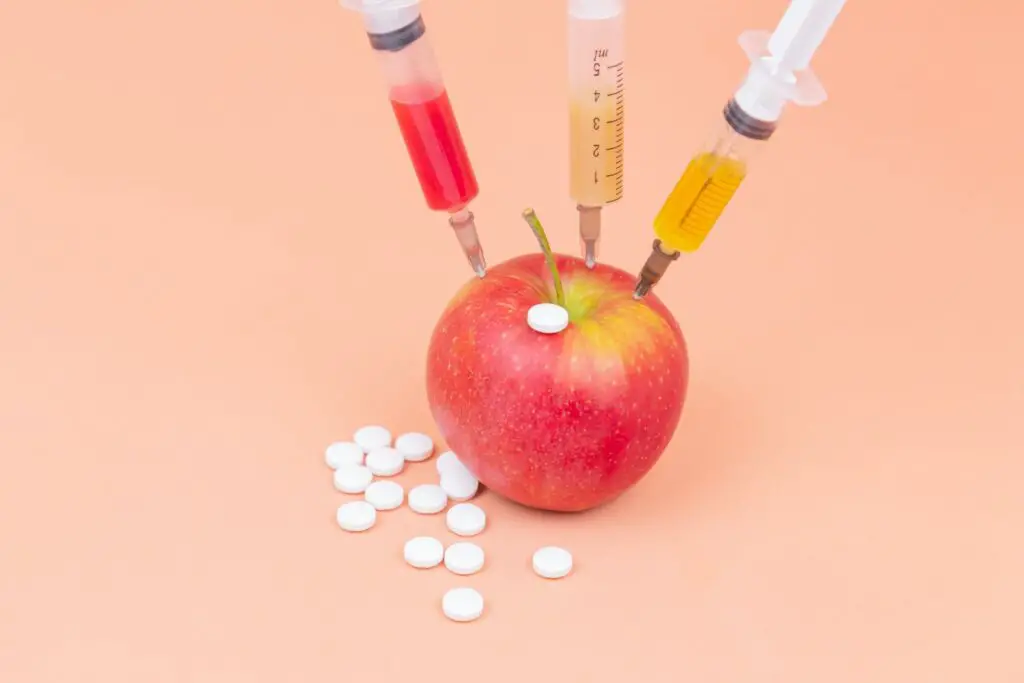Syringes have been indispensable components of medical operations since their inception.
This is beneficial; however, given how frequently it’s used, there seems to be a different perspective. This has raised a lot of environmental-related queries.
For instance, some have inquired as to whether or not syringes can be recycled or placed in the recycling bin.
Let’s get started.
Can Syringes Be Recycled?
The first thing to know is that recyclable plastic materials are used to make syringes – such as Polypropylene (PP) and polyethylene (PE) plastics. Hence, it’s acceptable to recycle them based on the materials they were created from.
Because syringes are constantly in contact with bodily fluids and blood, they are frequently predisposed to contamination just like their needles. So, syringe needles are never recycled even if they are composed of metal.
Even if the interaction with liquid and blood in syringes is minor, we cannot completely exclude this.
Why is It Difficult to Recycle Syringes?
Most recycling facilities are selective about getting syringes for recycling. Syringes are frequently put through various processes by those who take them to remove any impurities that might be on them.
Without a doubt, the recycling business requires a lot of capacity to manage the task. And only a meager proportion possesses this capability.
This explains why it could be challenging for you to find a recycling firm willing to accept syringes from you. In addition, collecting large quantities of syringes can be very stressful.
Syringes are tiny, therefore, it’s not advisable to recycle them one at a time.
You might be able to recycle syringes if you can procure enough of them. Syringe recycling can be impossible in other cases.
Can syringes biodegrade?
This is significant because protecting the environment has become everyone’s responsibility. We can use the syringes more carefully if we are aware of the answer to this question.
Quick response:
Syringes are biodegradable for a very long time. Plastic is used in the construction of syringes. They use plastics made of polypropylene (PP) and polyethylene (PE).
But every type of plastic, including PP and PE, takes a very long time to break down. The average time it takes for plastic to degrade is up to a thousand years.
Even in these cases, the process is not yet finished because the plastic materials simply break down into microplastic, which stays in the soil for an additional long time.
These microplastics can restrict plant growth and deplete soil nutrients, in addition to the fact that they have no beneficial effects on the soil whatsoever. Although this may be the final phase, several events take place beforehand.
For instance, heavy winding or flooding in syringes may move the needles to undesirable locations before they even begin to degrade. They might get into the water this way and hurt marine life there.
Syringes are generally biodegradable; however, there are a lot of negative side effects associated with the procedure. We can only hope that manufacturers figure out a solution to make ecologically friendly syringes.
We cannot advise people to reuse or reduce the number of times they use syringes.
Can You Reuse Syringes?
Syringe reuse can be extremely harmful to people’s health. The cause is that syringes, like their needles, frequently come into touch with bodily fluids or blood.
Dispose of syringes after each usage. Overall, the bottom line is to never re-use syringes or needles.
You must carefully dispose of them after using them to administer the doses.
Are Syringes Hazardous Waste?
The least we can do is be aware of the environmental risks they cause and how to dispose of them correctly.
Syringes are categorized in the medical industry as biohazardous waste or sharp waste for classification purposes.
If biohazardous waste comes into contact with tainted bodily fluid or saturated blood, it’s considered to be such. Similar to sharp trash, sharp waste is also dangerous if it comes into contact with blood or bodily fluids that have been saturated with harmful substances.
It is required that you bundle biohazardous trash in red bags that are either labeled as such or have the corresponding symbol when disposing of them. Sharp waste is subject to the same rules.
Is It Prohibited to Discard Syringes?
Yes, it’s unlawful to discard syringes.
This is for a variety of reasons:
Health, Safety, and Environmental Concerns
Syringe disposal is regarded as a health, safety, and environmental concern
Many individuals frequently fail to remove the needles from the syringes and dispose of them in this manner. The constant contamination of used needles and syringes could harm landfill officers and expose them to illnesses.
This law has been in effect in the state of California since 2008, and many people have complied with it over the years. Contrary to the custom, empty coffee tins shouldn’t be filled with syringes and discarded.
How Can Used Syringes Be Disposed of Safely?
How to get rid of your syringes can be found below.
1. The Sharp Waste of Syringes
Get a sharp rubbish bucket, please. These containers are frequently marked with biohazard symbols or special labels.
Then, store or place the used syringes in them as soon as you obtain the rubbish bucket.
2. Biohazardous Waste (Syringes)
You must purchase a bag for biohazardous garbage. These bags often come in red and are either marked as biohazardous or bear a symbol.
You’ll keep your syringes in the bag as soon as you get them.
When you’ve finished, place the bagged syringes in a biohazard trash container, the kind that is typically lined with red plastic bags and has a lid.
Conclusion
Recall: syringes are not the same as the typical garbage you find in your home or hospital.
Dispose of them by the recommended procedures. Failure to comply with this may result in legal repercussions and pose serious health risks to innocent persons.
References:
- https://www.conserve-energy-future.com/are-syringes-recyclable.php
- https://www.ncbi.nlm.nih.gov/pmc/articles/PMC7870444/
- https://www.cdc.gov/injectionsafety/patients.html







